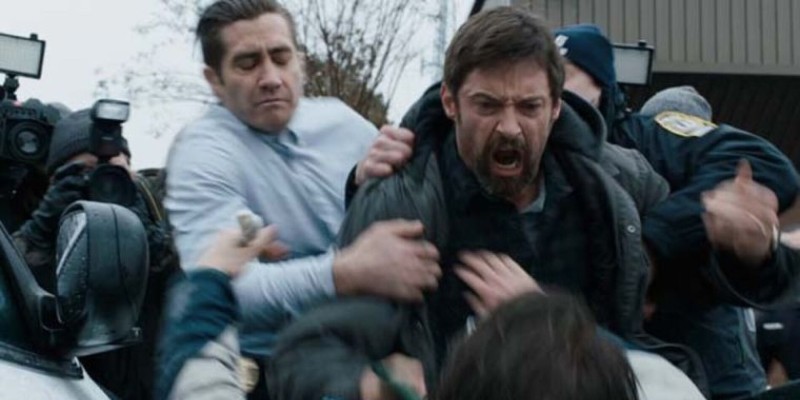Humans have always lived with deep-rooted fears of someone or something stealing our children. It’s a cultural anxiety that pops up in cases as varied as the story of Hansel and Gretel and the Lindbergh baby. But it was in the latter decades of the 20th century that these fears were refined and boiled down to their modern form. Fairy tales and ghost stories warned about the dangers in dark forests or forbidden areas, but in this new normal, kids weren’t safe in their own neighborhoods either. One of the first children whose face found its way onto a milk carton was six-year-old Etan Patz, who vanished without a trace waiting for his bus in Lower Manhattan in 1979.
“Stranger danger” swept America in the ensuing decades, and like any fear, some of its founding myths were just that, myths, like the stories of fiends who hid razor blades in Halloween candy, or Satanic cults that ran daycare centers. This fever broke but not without innocent people being falsely accused or even imprisoned.
In the 21st century, these anxieties remained, but a curious thing happened to them: they started to become less about fear and more about angry fantasies of what you’d do to such predators. A major milestone in this trend was the 2008 film “Taken,” in which Liam Neeson’s retired spy growled into a phone to his daughter’s kidnappers, “I will find you, and I will kill you.”
In 2016, after Hillary Clinton campaign chief John Podesta’s emails were hacked, the vaguely embarrassing contents were not enough for a group of amateur would-be sleuths, who bizarrely concluded that references to large pizza orders were actually coded references to a child sex-slavery ring based in the popular Washington pizzeria Comet Ping Pong. The business endured months of harassment and death threats, and in December 2016 a North Carolina man drove to the restaurant and fired a long gun three times, injuring no one.
The gunman, in a move that seems impossibly quaint today, acknowledged his “investigation” indicated the stories were false. The thing that rose from its ashes, the Qanon conspiracy theory/cult, made sure to handle this problem with an elaborate, esoteric set of amorphous beliefs that are constantly shifting to cover their own contradictions and debunkings. Multiple killings have been linked to the theory, including the alleged boss of the Gambino Mafia family in 2019.
Denis Villeneuve’s 2013 film “Prisoners” was released during a relative trough in the waves of this fear, between the Satanic Panic of the 80s and 90s and the modern phenomenon kicked off by the Podesta hack. It’s got a pedigree that makes it sound like far more of a crowd-pleaser than it is. It stars a man who shot to stardom playing a superhero, with a director who’s since been handed the reins of two different iconic sci-fi franchises, and five of its six top-billed actors have won or been nominated for Oscars. Despite this, the best way to describe the movie, which turned ten this September, is “bleak,” both in terms of tone and subject matter and aesthetics, taking place in a perpetually snowy and damp Pennsylvania suburb.
We’re introduced to friends and family men Keller Dover (Hugh Jackman) and Franklin Birch (Terrence Howard) when their young daughters vanish without a trace. The police initially suspect a local developmentally disabled man (Paul Dano) but are forced to release him for lack of evidence. (Entirely by coincidence, Dano’s character shares a name, Alex Jones, with a real man who was sneering that other parents’ murdered children never existed at the time of the movie’s release)
It’s here that the movie becomes about something even darker than missing children, as Keller kidnaps Jones and holds him in an abandoned building, torturing him for the information he knows he must be concealing. Keller’s a father driven to extremes, but it’s clear he’s also living out a fantasy to some extent; he’s introduced training his son to shoot and hunt in case of an apocalyptic scenario, and while he lives in the suburbs instead of off the grid, it’s clear he’s cultivated at least an amateur prepper lifestyle. Keller takes to his detention and interrogation of Alex like it’s something he’s been waiting for all his life, in contrast to Franklin’s horror at the situation.
Faced with Franklin’s moral qualms, Keller replies with what could be the thesis statement of the modern use of accusations of pedophilia as a political hand grenade: “He stopped being a person when he took our daughters.”
And of course—spoilers for a 10-year-old movie follow—the capper for all this is that Alex is innocent. The actual culprit, Jake Gyllenhaal’s brooding detective learns, is Alex’s mother Holly (Melissa Leo), a serial abductor of children, including Alex. Keller’s paternal rage didn’t lead him to the truth or to his children, only to an easy target whose absence wouldn’t cause much consternation—the same calculation a serial killer often makes.
“Prisoners” didn’t invent its stakes out of whole cloth—the idea of doing anything to protect your child was not a new one when it was made. But it did tap into the dark fantasy that drives both Qanon and the current moral panic that seeks to smear all LGBTQ people as “groomers”—the notion that all you need to do is identify someone as a threat to children to make any action against them morally acceptable. And as much sense as that may make to any parent, even a non-violent one, “Prisoners” asks: what if you’re wrong?

















